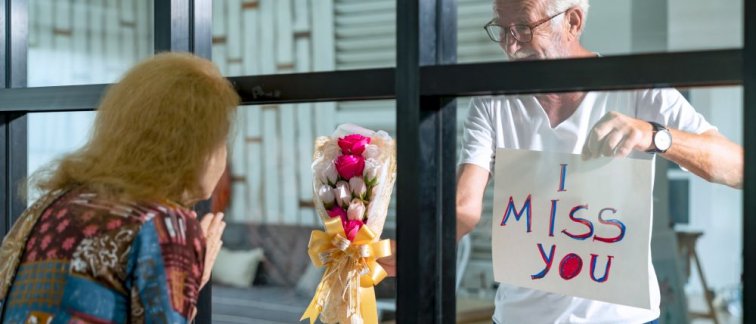Recently a book about socially vulnerable people and their caregivers during the first corona wave in the Netherlands was published. The book ‘Vulnerable at a distance - Stories from corona times’ (Kwetsbaar op Afstand – Verhalen uit Coronatijd) was edited and published by Nivel researcher Laura Muns in collaboration with anthropologist and university lecturer Danny de Vries and other stakeholders.
To reduce the spread of a virus, it is important to keep a physical distance and stay at home as much as possible. What was the impact of such measures on socially and culturally vulnerable people during the corona crisis in the Netherlands? Initially, Dutch government policy was mainly aimed at safety in the form of preventing contamination and chaos on the intensive care. Less attention was paid to the social crisis that resulted from this policy. What if your social life consists mainly of organized activities that come to a standstill? If your (voluntary) work is no longer necessary due to the consequences of the measures? What happens when you need help and support to live your life the way you want it to, and this support suddenly stops? For many people, life became completely different. Based on one of the first social science studies during the pandemic, this book looks at the first corona "wave" in spring 2020 through the eyes of the most socially vulnerable.
The book tells the personal story of ten socially vulnerable people and their caregivers during the first corona wave in the Netherlands. The stories were recorded by a group of researchers during one of the first social science studies in the crisis. The study shows the need for a better balance between social safety and infection prevention in policy and care practice.
Read more about this book in Dutch on the Amsterdam University Press website.
See also the social scientific knowledge platform: www.coronatijden.nl

